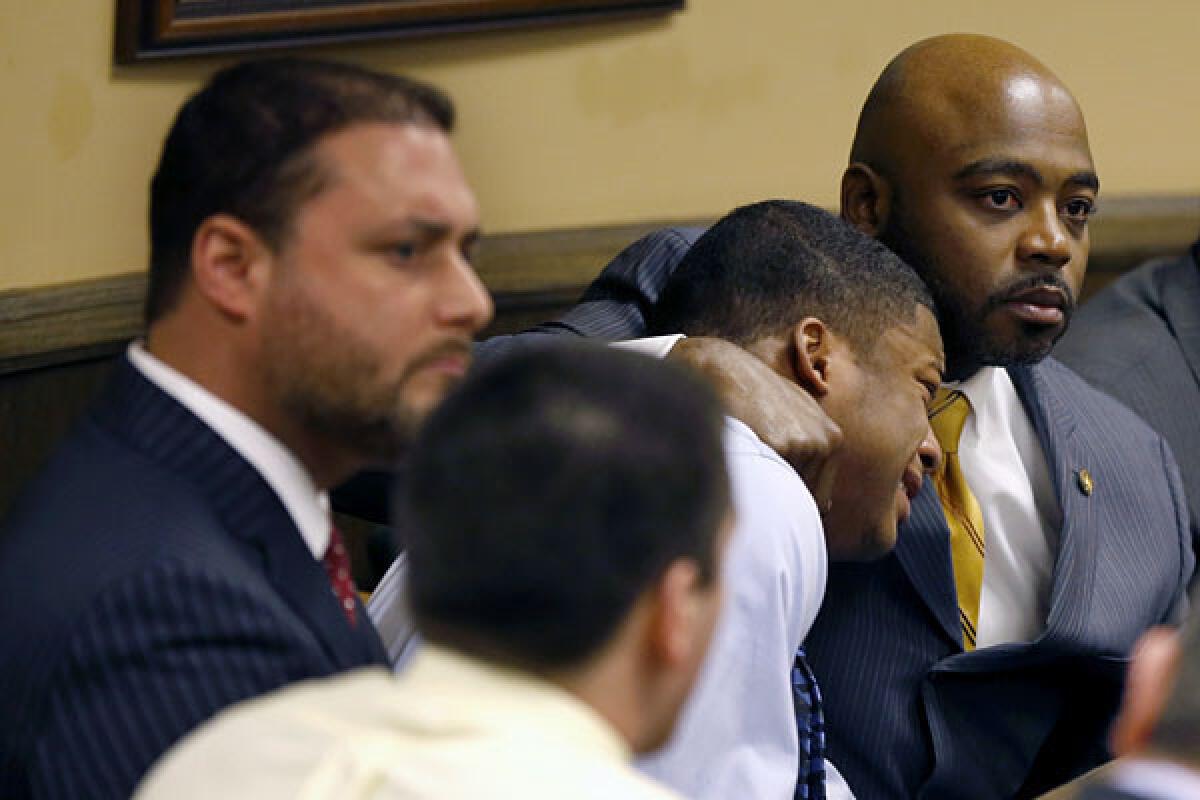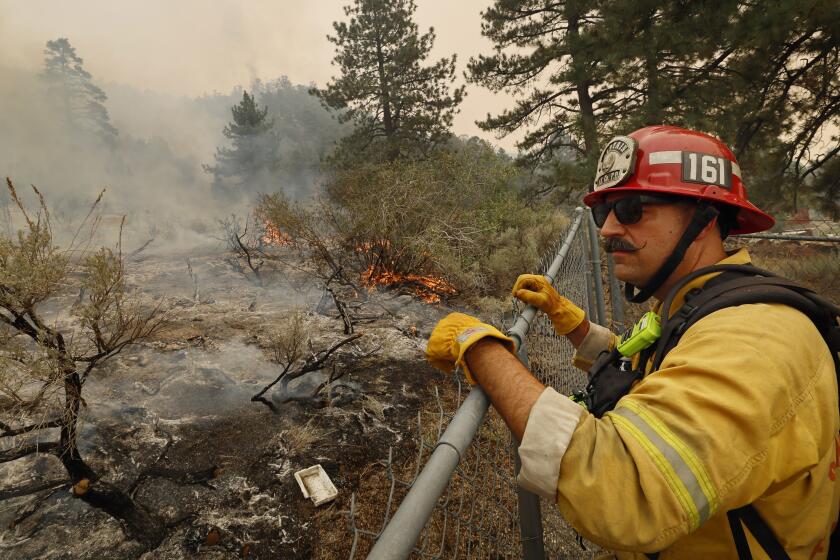Drunkenness isn’t the same as consent

It would be easy to close the book and say justice has been served in the Steubenville, Ohio, rape case.
Two high school football stars were found guilty Sunday of raping an intoxicated 16-year-old at a party in a case that became a national scandal after videos and photos of the assault wound up on YouTube and Instagram.
The text messages, pictures and jokey tweets that teenagers from the party shared online suggest a communal lack of conscience. That made it easy to blame locals so enamored of their football team that jocks thought they could get away with just about anything.
But this isn’t just about the athletes and small-town ennui.
We’ve had similar episodes here: Ten years ago, an Orange County girl was raped and sodomized with a bottle, cigarette and pool cue by three 17-year-olds who turned the attack into a homemade porn video. In 2009, a girl was gang-raped for hours outside a homecoming dance in Northern California while young people watching sent text messages inviting their friends to join them.
There’s something beyond cellphones and criminal conduct that ties the two cases to what happened in Steubenville.
All three victims were 16-year-old girls who were so intoxicated during the assaults they could not remember what happened.
That doesn’t excuse the conduct of the young men; what they did was not only illegal but horrifically immoral.
But it is an ingredient in this toxic stew that we can’t afford to keep ignoring.
One in five teenage girls today goes on regular drinking binges. I’m not talking about college students, but 15-, 16- and 17-year-olds, who down four drinks or more in a single session at least once a month.
If you count occasional binge drinking, half of 10th-grade girls engage and more than 60% of seniors, according to the Centers for Disease Control and Prevention.
As the mother of three daughters, I stumble over my feelings when cases like this occur.
I’ve always tried to remind my girls, now grown, about choices that might make them vulnerable: how they dress, whom they hang out with, how much alcohol they drink.
But conversations like that are hard to have without sounding like you’re blaming the victim.
I know whose side I’m on. I’m beyond angry at teenage boys who view girls as objects and violate them callously.
But I’m also worried about teenage girls who wake up in the morning and don’t know what happened while they were blacked out from drinking.
::
I understand the reluctance in this case to talk about the victim. No one wants to heap scorn on a girl who’s suffered such indignities.
But ask yourself: What if that was my daughter who woke up in a strange basement, naked and unable to find her cellphone or her panties?
According to testimony at the trial, the Steubenville victim had been so intoxicated the night before, she fought her friends when they tried to get her to leave the party. She was so drunk she could barely speak, stumbled when she tried to walk and sank to her knees in the middle of the street to vomit … en route to a second party.
That’s what binge drinking does. A friend testified that they had shared at least half a bottle of vodka.
The two boys convicted of rape told the court their sexual encounters were consensual. The videos, texts and tweets told another story.
The girl testified, tearfully, for hours. But she had to rely on texts and videos — of boys manhandling her naked — because she had no memory of what happened.
It’s possible that the boys who assaulted her and the teenagers who watched and joked about it are soul-less kids who didn’t care about the victim. But it’s also possible that they are self-centered, impulsive and ignorant about the difference between sleazy and illegal.
During trial, there were boys who told the judge they didn’t know that what they had witnessed was rape.
If that is true, it reflects the sort of confusion that suggests we adults have work to do.
For a long time we’ve relied on the slogan “No means No” to empower girls and let boys know that it’s not OK to talk your way to consent.
But when 10th-graders are routinely getting too drunk to resist, then we need to add a message to that lesson: It’s against the law to have sexual relations with a person who is too intoxicated to agree. If you think she’s had too much to drink, then you’d better back off.
We have to impress upon our sons and daughters the dangers of binge drinking, which has become the norm at too many high school parties. But first we have to face the reality that these are not the keggers of our youth. There are more ways than before to get wasted.
And dozens of people with cellphones ready to record it.
Investigators are not done with the Steubenville case. Before the trial they seized 15 cellphones, sifted through hundreds of thousands of videos and texts and interviewed 60 people. Now they plan to use a grand jury to bring more indictments.
But beyond the legal maneuvering and punishment after the fact, more needs to happen in homes and schools to keep teenagers on the right track.
We need to make this an object lesson, and not just about what happens when you cross the line and sex becomes a crime. But what can happen when you get so drunk that you have to rely on texts and tweets to know what happened to you the night before.
More to Read
Sign up for Essential California
The most important California stories and recommendations in your inbox every morning.
You may occasionally receive promotional content from the Los Angeles Times.










